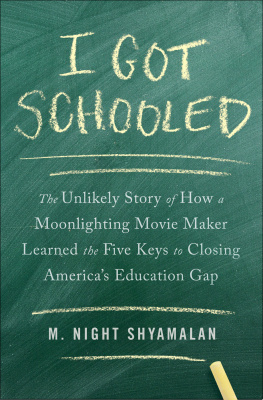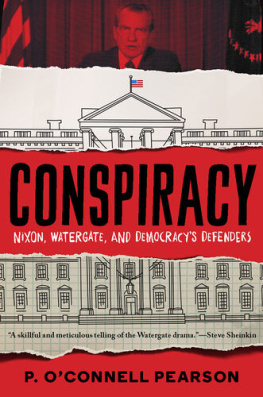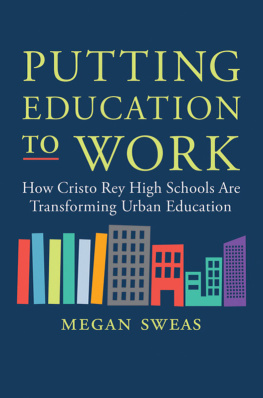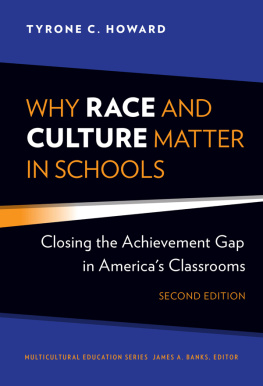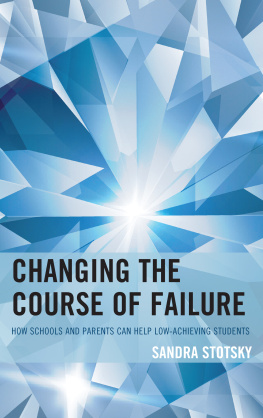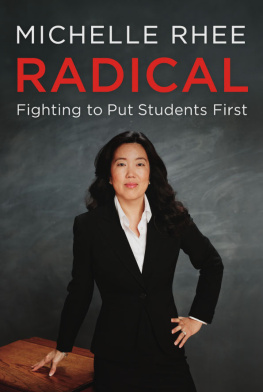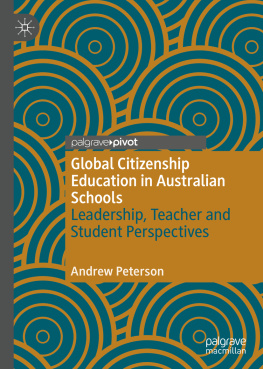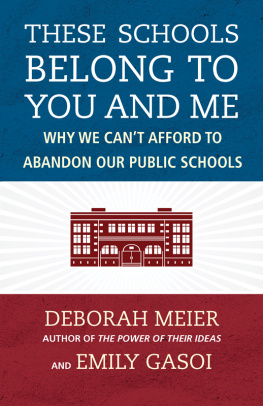Thank you for downloading this Simon & Schuster eBook.
Join our mailing list and get updates on new releases, deals, bonus content and other great books from Simon & Schuster.
C LICK H ERE T O S IGN U P
or visit us online to sign up at
eBookNews.SimonandSchuster.com
CONTENTS
To Bhavna and her keen sense of injustice.
PROLOGUE
Everyone who decides to give money away makes missteps. A long time ago, I contributed to a passionate and well-meaning low-income housing initiative. I read their proposal, met with them, went to their church, walked the blocks that were going to be transformed, and wrote a checka big one. Many years later, all I had bought with it was a raft of lost promises, intricate excuses, and bewilderment about where the funds went.
I licked my wounds. In due time, my interest in doing something to help my hometown of Philadelphia slowly migrated to education. Again, I chose to accomplish this by writing more checks. My wife, Bhavna, and I identified four exceptional public high school students from low-income schools and informed them we were going to help pay for their four years of college. To celebrate our candidates, I arranged to host a dinner with them at a popular and well-known restaurant to commemorate this auspicious beginning.
One thing you need to know about me is Im seriously, clinically sentimental. I keep all the napkins I write ideas down on. Sunsets are a must on vacation. My house is filled with photos from every moment in my familys history. I keep a special bottle of Champagne for every script I complete. This list of sentimental rituals is long and getting longer; this dinner was going to become one of them. My wife and I were going to have an inspiring dinner with exceptional kids that were one day going to change the city of Philadelphia.
This is not what happened.
Bhavna and I waited at the restaurant as one by one the scholarship awardees arrived. One was escorted in by a very suspicious and protective aunt. The aunt clearly didnt want to leave, but eventually relented. So there we were, Bhavna, me, our awardees, and utter silence. I am considered a loquacious guy. I sallied forth with my best icebreakers and never-fail-me jokes. These had no effect.
I took stock of our guests. All four stared with hurt, pained eyes. Through the course of the barely eaten meal, a few morsels of information spilled from their otherwise sewn-shut lips. The most important was this: They were scared and unprepared for college. These children were not ready. They were deeply struggling. They were suspicious of Bhavna and me, and suspicious of the world.
Thats when I began to recall things from their applications and letters, things that I had chosen to ignore. The uneven scores in their academics. The low percentiles of their standardized test scores as compared to public school kids not in the inner city. I remembered the darkness that stained their letters. The system had failed them and shoved them out the door with ribbons saying they had won.
It didnt take much to see that the immediate future for them would be very difficult and they would feel every day like they were barely breathing. As they shook our hands politely and left, Bhavna looked at me and saw I was shaken. I was looking to be inspired. These children needed saving, but our money wasnt going to do the trick. The system had beaten them badly enough that no amount of money could undo the scars.
There are moments when you think you are somewhere on a road close to your destination until you see a road sign that tells you that you have drastically miscalculated the length of your journey. Bhavna and I left that restaurant feeling as so many others before us must have felt as they stared down the road and knew that their destination had somehow gotten further away. If we wanted to fix Philadelphias broken educational systemto say nothing of Americaswe needed a new map.
PART ONE
THE GAP
1
AS JOHN ADAMS SAID...
Some filmmakers love location scouting. Im not one of them. You drive in a van or fly a plane for eternity just to get out, look around, and say, This isnt it. You do this over and over till you find the place where you know the characters can live and breathe and walk around.
Which is what I was doing in the spring of 2007, with a team of location managers and scouts who were ferrying me around Philadelphia, looking at potential filming locations for The Happening, which was going to star Mark Wahlberg as a teacher in a Philadelphia high school. Our search had taken us to the Julia R. Masterman Middle and High School, a public school located at 17th and Spring Garden, right in the middle of the city. This is a flat-out beautiful building and beautiful school. I knew right away when I stepped out that this was the place. It just felt right. There was light there.
Im not superfamous, but people know my movies. Once it got around that we were scouting Masterman High School, the kids went crazy. They started coming out of the classrooms, circling, asking questions. Are you making a movie here? Is someone going to die here? Can I die? The usual inquiries. It was a pied piperlike scene as we moved through the building. We took our notes, talked to the principal, and left.
Then we drove fifteen minutes to Overbrook High School in West Philadelphia. It is a towering, imposing building. Inside, its all fluorescent lights and metal detectors. The classrooms had bars on their doors and windows, and each one had to be unlocked before we could see them.
Something you should know about me is that Im a pretty selfish guy. Not a great citizen of the world. I care about my family and films. Thats it. Someone needs saving, countries need assistance, Im sympathetic, but it doesnt penetrate me. But when they showed me the floor of the school that was closed because of too much drug use and sexual activity, something dark wrapped in outrage started growing in my stomach. It kept growing as they showed me the school theater that was being renovated because of a suspiciously set fire.
Something happened to me standing in the hallway in Overbrook High School. My arms became tight. My jaw set. Its exactly what happens when someone elbows me in a basketball game. It gets my attention.
Which is more than we got at Overbrook. When we walked down the halls, only one boy even looked at us. Something akin to recognition flickered in his eyes and then vanished. He looked back down and kept walking. That was the only moment of acknowledgment that a film-location crew was in the building.
Im certain that the students of Overbrook watch just as many movies as the kids at Masterman. Just as many of them want to be actors or directors or producers. To Mastermans students, though, while a visit from a film crew wasnt an everyday event, it was exactly the sort of thing they expected to happen. Their entire lives had taught them that things like that were possible. That anything was possible. Overbrooks students didnt even believe we were there. If the kids at Masterman had spent their lives being taught that anything was possible, Overbrooks student body had learned the opposite.
Thats one reason that the achievement gap that separates inner-city schools from suburban ones doesnt exist at Masterman. Which meant they had opened up a cavernous gap between themselves and Overbrook. In 2010, Masterman was one of only two high schools in the state of Pennsylvania to be awarded a National Blue Ribbon, which means just what it sounds like. Masterman students take enriched math and foreign language programs, participate in half a dozen different music ensembles, and can try out for nationally ranked chess and National Academic League teams. The school has a 100 percent graduation rate, and nine out of ten Masterman graduates are headed to a four-year college. Overbrook? Only 54 percent of Overbrooks students get a diploma. At Masterman, nearly one student in four takes the Advanced Placement test in English, and 90 percent receive a score of 3, 4, or 5: enough for college credit. At Overbrook, only one student in fifty takes it and, the last time anyone checked, none got as high as a 3.
Next page
